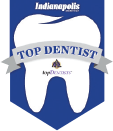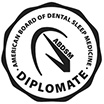
Although gum disease is a common dental problem seen by dentists, many cases can be corrected or even avoided using the right tips and techniques. Because a decline in cognitive function is possible should gum disease remain untreated, dentists at Indy Dental Group strive to provide high-quality services to not only treat poor gum health but also reduce a patient’s risk for Alzheimer’s disease. With periodontal therapy and positive oral health habits performed at home, the effects of gum disease can be minimized. Read on to learn more about the connection between the two and what you can do to safeguard your smile (and mind) over the years.
Alzheimer’s and Gum Disease: Where is the Link?
A recent study conducted by researchers at the U.S. pharmaceutical company Cortexyme discovered the bacteria known as P. gingivalis, which is commonly found in cases of periodontitis, was also seen in individuals living with Alzheimer’s disease. While this isn’t the first group to identify the connective link, these researchers also found gingipains, which are toxic enzymes, in the brain.
For years, scientists have used mice to study the bacteria that link gum disease and Alzheimer’s, finding that it destroys neurons once it travels and reaches the brain. Certain proteins also formed plaque in the brains of patients with Alzheimer’s.
The researchers at Cortexyme, Inc. developed a drug that slows the production of certain proteins that can cause plaque as well as decrease inflammation and lower the P. gingivalis bacteria. However, additional research must be conducted to better identify connections.
Ways to Prevent Gum Disease
Although researchers state it is not definite that patients with gum disease will develop Alzheimer’s and vice versa, most concur that optimal oral health is a positive and healthy step in the right direction to reducing potential links.
Whether it is you or a loved one who is at risk for developing gum disease, there are steps you can take to minimize the potential problem and enjoy life with a healthier smile, such as:
- Maintaining an optimal oral hygiene routine at home. This includes brushing your teeth with fluoride toothpaste twice a day for two minutes. You’ll also need to floss at least once a day before going to bed and rinsing with an ADA-approved mouthwash. If you worry you will develop gum disease, ask your dentist about product recommendations to lower your risk for gum disease.
- Limiting how much sugar and starch you are consuming each day. Make sure you are incorporating healthy foods like leafy greens, fruits, vegetables, low-fat dairy, and lean proteins.
- Continuing to see your dentist every six months for regular dental checkups and cleanings.
- Quitting the use of tobacco products and smoking, as this raises your risk for gum disease and other serious health conditions.
- Inquiring about periodontal therapy should you notice signs of gum disease (i.e., swollen and bleeding gums, bad breath, gum recession, etc.).
You should also find ways to keep your mind sharp. Reading, doing crossword puzzles or memory games, studying a new topic, and exercising can help with cognitive function.
Taking these steps as well as maintaining contact with your medical physician and dentist will allow you to better protect your gums, teeth, and brain. As a result, you can reduce your risk for Alzheimer’s and continue living your best life.
About the Practice
The dental team at Indy Dental Group wants you to enjoy life with a healthier, happier smile. Should gum disease become a problem, it’s essential you schedule an appointment to see a trusted professional for treatment. Allowing this common dental issue to remain untreated can lead to worsening health conditions, one of which is Alzheimer’s disease. If you are struggling with inflamed gum tissue and worry it may impact your cognitive function, contact us at (317) 846-6125.


























